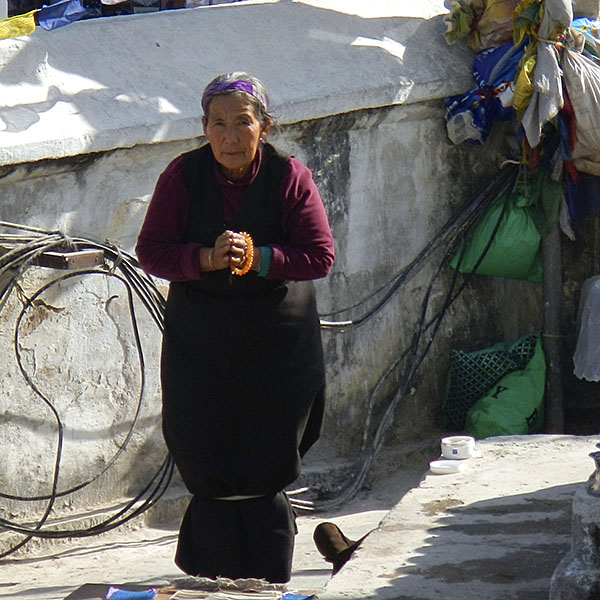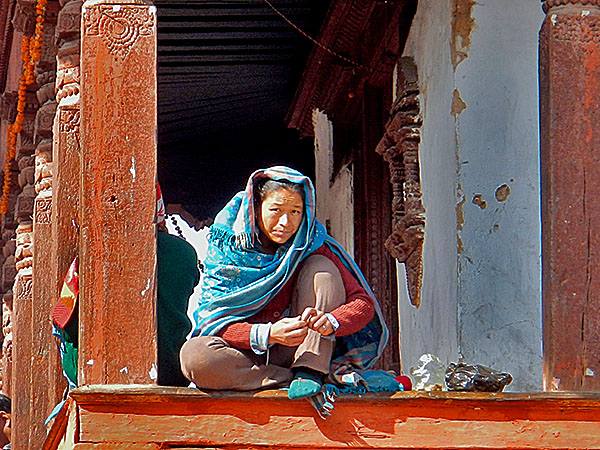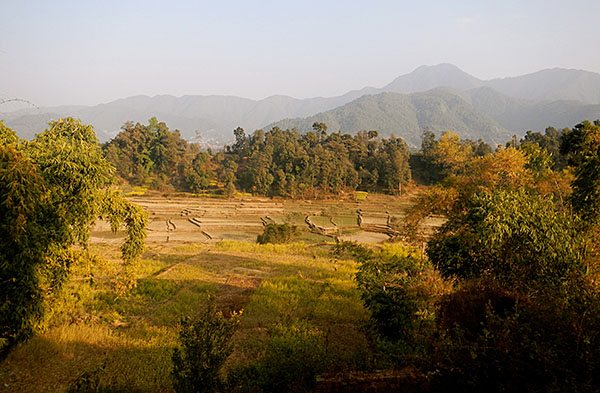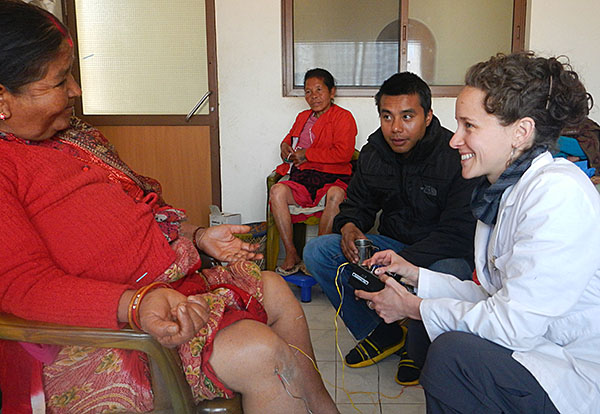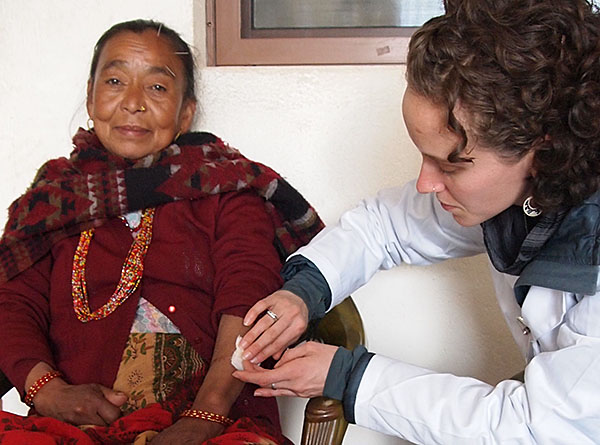News Blog
Latest News From Our Volunteers in Nepal
VOLUNTEER COMMUNITY CARE CLINICS IN NEPAL
Nepal remains one of the poorest countries in the world and has been plagued with political unrest and military conflict for the past decade. In 2015, a pair of major earthquakes devastated this small and fragile country.
Since 2008, the Acupuncture Relief Project has provided over 300,000 treatments to patients living in rural villages outside of Kathmandu Nepal. Our efforts include the treatment of patients living without access to modern medical care as well as people suffering from extreme poverty, substance abuse and social disfranchisement.
Common conditions include musculoskeletal pain, digestive pain, hypertension, diabetes, stroke rehabilitation, uterine prolapse, asthma, and recovery from tuberculosis treatment, typhoid fever, and surgery.
FEATURED CASE STUDIES
Rheumatoid Arthritis +

35-year-old female presents with multiple bilateral joint pain beginning 18 months previously and had received a diagnosis of…
Autism Spectrum Disorder +

20-year-old male patient presents with decreased mental capacity, which his mother states has been present since birth. He…
Spinal Trauma Sequelae with Osteoarthritis of Right Knee +
60-year-old female presents with spinal trauma sequela consisting of constant mid- to high grade pain and restricted flexion…
Chronic Vomiting +

80-year-old male presents with vomiting 20 minutes after each meal for 2 years. At the time of initial…
COMPASSION CONNECT : DOCUMENTARY SERIES

Episode 1
Rural Primary Care
In the aftermath of the 2015 Gorkha Earthquake, this episode explores the challenges of providing basic medical access for people living in rural areas.

Episode 2
Integrated Medicine
Acupuncture Relief Project tackles complicated medical cases through accurate assessment and the cooperation of both governmental and non-governmental agencies.

Episode 3
Working With The Government
Cooperation with the local government yields a unique opportunities to establish a new integrated medicine outpost in Bajra Barahi, Makawanpur, Nepal.

Episode 4
Case Management
Complicated medical cases require extraordinary effort. This episode follows 4-year-old Sushmita in her battle with tuberculosis.

Episode 5
Sober Recovery
Drug and alcohol abuse is a constant issue in both rural and urban areas of Nepal. Local customs and few treatment facilities prove difficult obstacles.

Episode 6
The Interpreters
Interpreters help make a critical connection between patients and practitioners. This episode explores the people that make our medicine possible and what it takes to do the job.

Episode 7
Future Doctors of Nepal
This episode looks at the people and the process of creating a new generation of Nepali rural health providers.

Compassion Connects
2012 Pilot Episode
In this 2011, documentary, Film-maker Tristan Stoch successfully illustrates many of the complexities of providing primary medical care in a third world environment.
From Our Blog
- Details
- By Lindsey Thompson
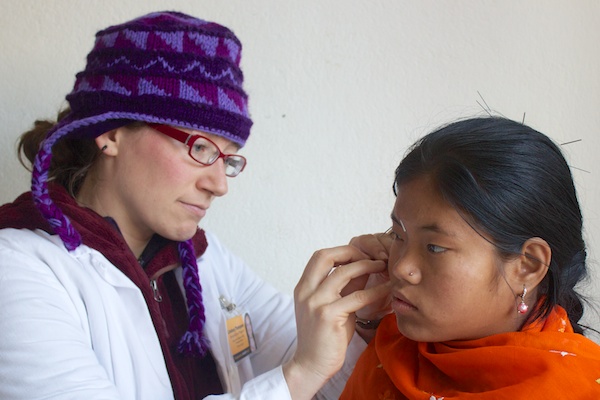
...but words can never hurt me. The teenage years appear to share a universal language of challenge. I remember my high school math teacher, giddily proclaiming that math overcame all language barriers across the globe. It seems the emotional roller coaster of self discovery during the shift towards an adulthood self shares a universal language that stretches to the Himalayas.
Asha Maya came see me again today. She is a sixteen year old with Bell's Palsy (a condition which paralyses one side of the face), who has been receiving treatment with the Acupuncture Relief Project for one year. At a glance, it is no longer obvious that the right side of her face droops and refuses to move.
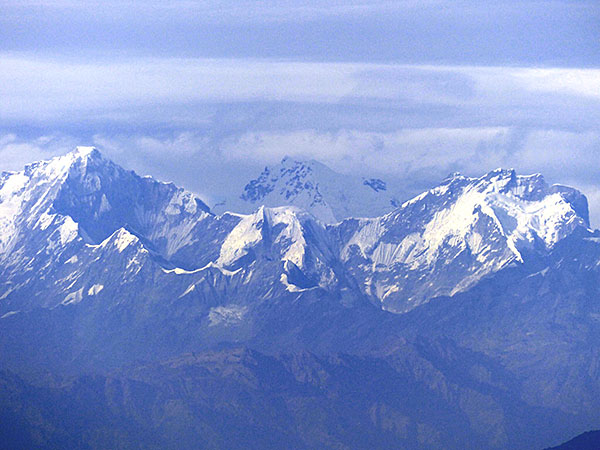
I began working with Asha Maya in mid-January. Her voice whispers from her mouth and shyness perfuses most of our interactions. Over the last month, I feel that our relationship has grown. I get stronger eye contact, a deeper voice, and at times, we even joke. I tell her that I'm very happy to see her, and after the brief time lag of interpreting, Asha Maya's face lights up from within. In her melodic voice , she says she's glad to see me too. The smile, while one-sided, is an internal smile that warms her face, her eyes, and being. I think to compliment her on her beauty, but since there are many women in the room that I have not complimented, I hesitate and choose not to say anything.
I have her lift her eyebrows in mock surprise, pucker her lips, and smile to assess how much movement the facial muscles can achieve. After hearing so many class lectures about how effective Chinese medicine can be for facial palsy and stroke, the movements seem minute for her year of treatment. I ask her if she thinks the acupuncture is helping her. Asha Maya waggles her head from side to side in affirmation and tells me it is helping. After a moment she says quietly, "I just want my face to move again."
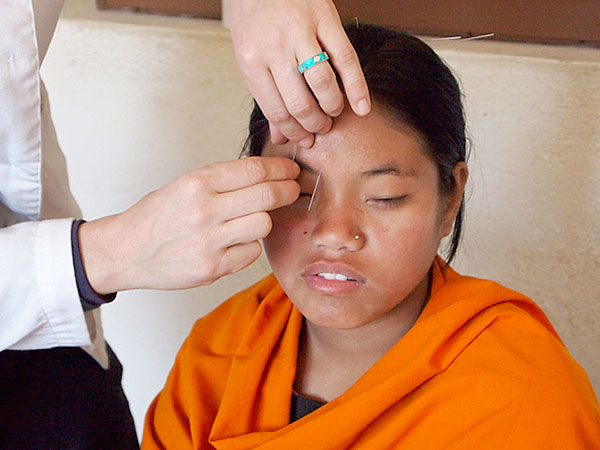
I continue using the protocols I learned in school and try to restore movement to her face with acupuncture. After I've placed the needles, I have a momentary lull in patients. I take the opportunity to thoroughly read the last year of chart notes, intending to bring the case up to the team later that evening and rethink her treatment plan. I learn quite a bit. Asha Maya has had slow and steady improvement. In the beginning, she could not fully close her right eye. Now she can. She currently sits with her eyes closed absorbing the work of the acupuncture and moxa combination.
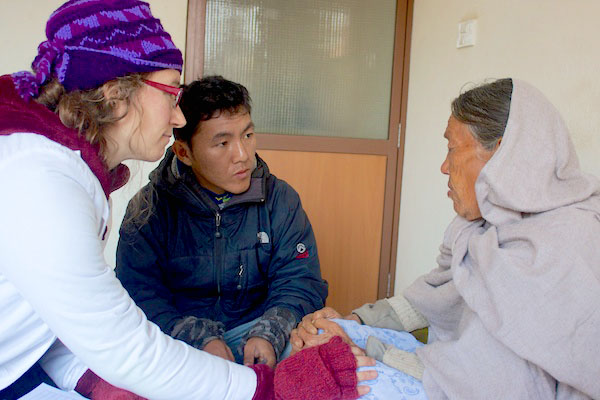
Near the beginning of her chart, an annotation pops out at me. "She does not want to leave her house because the boys make fun of her." My heart aches. For a moment, I experience shock and a rise of indignation at the idea of peers teasing someone for an appearance change beyond their control. Then I remember my teenage years, filled with ruthless jeers and power struggles that weaponized tongues. Sticks and stones can break my bones, but words can never hurt me.
I wish the sing-song phrase our mothers taught us in the nursery held true. In reality, the words we use on one another linger for years, decades, and sometimes for a lifetime. I have sat with friends and patients discussing the past, hearing how words spoken a decade before hobble them now. I wonder if the injury of words flowered on the surface like bruises, if we would be more careful with our speech.
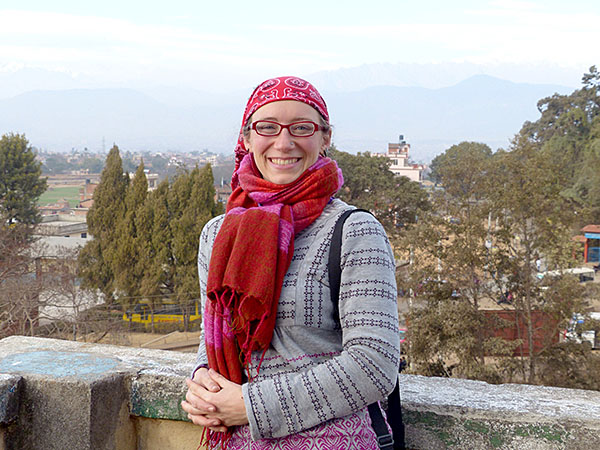
I resolve to speak my compliment to Asha Maya and to each patients when it pops into my head. As my mom used to say, "You never know if a person has heard a kind word today." Along these lines, uplifting compliments and acknowledgments can also stand the test of time. The review of Asha Maya's chart notes, sticks with me. I see it as a reminder of the power of our words. The power to infuse confidence, strength, and hope or to practice undermining verbiage. I hope to practice the art of building with my speech, and notice when I run the risk of becoming careless with my words. ---Lindsey Thompson
- Details
- By Emma Goulart
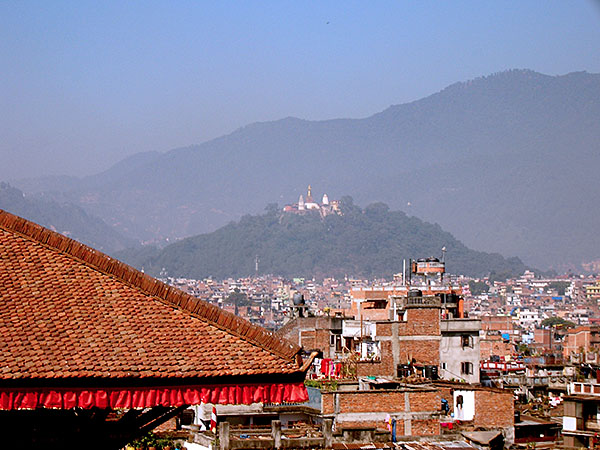
Stepping off the plane into Kathmandu immediately put my senses on overload. Trash everywhere, burn piles in the streets, dusty haze hanging still in the air, beggars that make your heart contract, ragged stray dogs balding and weak. The traffic is horrendous, some sort of organized chaos that takes your breath away in more ways than one. Kathmandu city is notably loud and Nepal's winter is so so cold, without any escape.
... And yet, there is so much priceless beauty in the peoples eyes and in these sacred temples that it just stops you in your tracks.
After our adventure in the big city, we arrive to Chapagaon and I feel appreciative of the farmlands that surround our landscape here. Right away we head on a walk to become familiar with the neighborhood. The roads are more like what you might find on a backpacking trip, rocky terrain and slippery slopes, though littered with plastic wrappers. Around the backside of the clinic there are seemingly endless terraced farmlands. This time a year these gardens are filled with either mustard greens, bolting yellow mustard flowers, emerald green scallions or 2 foot tall fava beans. The majority of the fields have been covered in a cover crop until this last week. Now they are all transforming into rows waiting to be seeded. I take this as a hopeful sign that warmer weather is to come.
The day before beginning to treat, we are braced with a few questions to think about. What good is your compassion here without any wisdom? That question resonates inside, turning my stomach over on itself with the responsibility I feel for being a Doctor here. Understanding the difference between Treatment vs. Care and what exactly we are here to do. Its not a matter of how good our needle technique or Chinese Medical theory is. Instead we are here to see a larger picture of how to give our patients their best care. While doing so, holding both compassion and wisdom at the forefront. The compassion to be present and the wisdom to know when to treat and when to send out for the appropriate care.
Now we are three weeks in and I realize the magical exchange that happens within these clinic walls. Sinking into the flow, i feel as though I have had a moment to reflect for the first time. For the first few weeks, I felt as though hit by an emotional truck. The initial impact of the patients stories have hung heavy in my heart and I felt unclear how exactly to digest it all. Then one morning this week it became clear, that this is a mutual experience of giving and learning. I am here to heal and grow just as much as the patients coming into our clinic. This lifts the foggy veil of responsibility that has clouded my mind and allows me to work from a clarity. Only in this way will I be able to interact from a place of wisdom and compassion, delivering the best care i can give. --- Emma Goulart
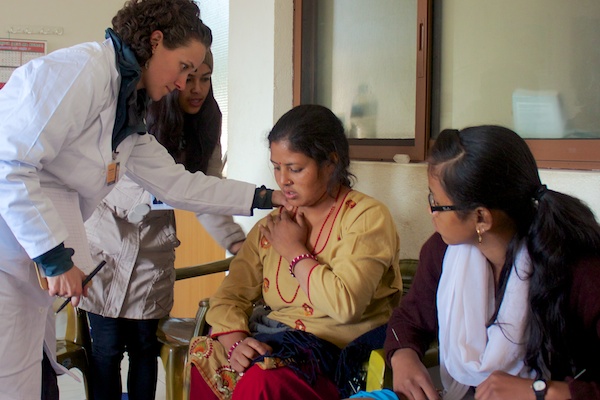
- Details
- By Andrew Schlabach
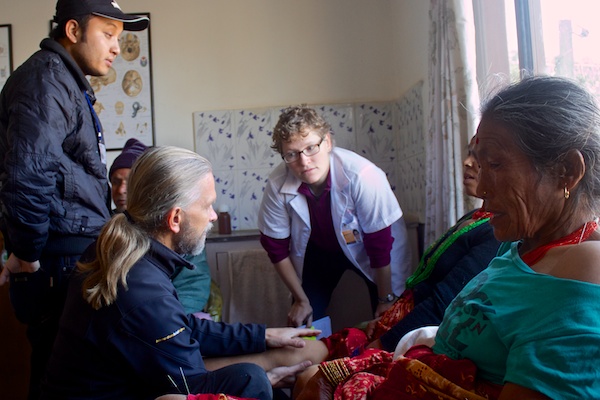
Learning to focus on measurable clinical outcomes is a skill that takes practitioners many patient touches to understand let alone master. Every year at our clinic in Nepal, Acupuncture Relief Project team leaders and I help practitioners learn to do better exam work, observe and record critical data and measure patient progression. My fellow colleagues, volunteers and teammates often reflect to me how tired they are of hearing me say “be objective.”, “how are you measuring that?”, “I know they are getting better but by how much?”, and finally “don’t rely on the patient to tell you how much they have improved... measure it! prove it!”. I certainly don’t mean to be a pest but I do want our practitioners to improve their diagnostic and prognostic skills. It is not enough to just treat hundreds of patients in Nepal... we have to be sure we are either getting them better or finding them someone who can.
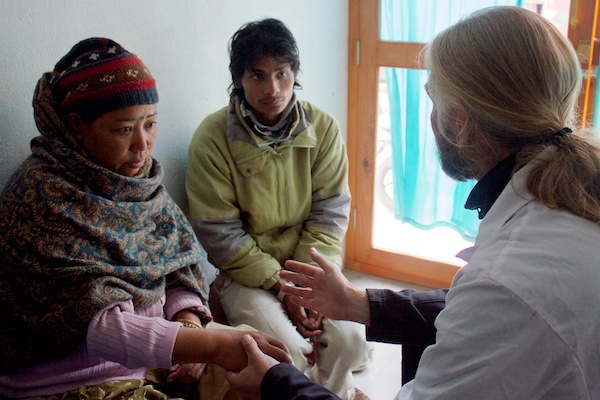
This all seems like a straight forward process until you actually get into the treatment room. We are constantly confronted by the realities of the developing world: poverty, poor living conditions, lack of referral resources and hundreds of environmental factors like the absence of clean water, air pollution and poor sanitation. We also face many cultural and social obstacles like domestic violence, alcoholism, disenfranchised castes, disadvantaged ethnic groups and poor education. Then of course there are the human factors of old age, loneliness, depression and hopelessness. Even though most of our patients live a simple agrarian life, the day to day stress of basic survival for themselves and their families often weighs heavily on their well-being.
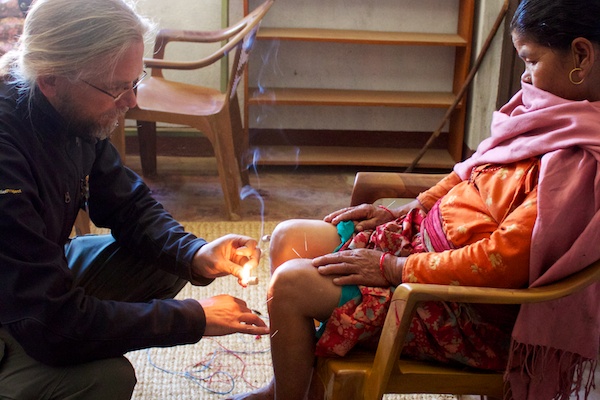
After months of balancing these many complexities it is easy to lose sight of our basic objectivity. On my recent return to the United States, I asked myself ”What did you accomplish”? The answer was so broad I wasn’t sure I could even grasp it. Hopefully I can illustrate some part of it in this story.
---
If you have seen our short documentary Compassion Connects you might remember seeing this young women (below right). Thirty-year-old Kanji Maya Tamang is one of three Tamang women who travel from the small village of Bhardev to our clinic in Chapagaon. Kanji Maya tells us in the video that she is coming to our clinic for menstrual pain. The full story is actually much more complex.
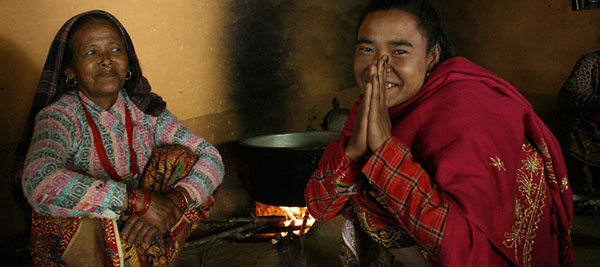
Kanji Maya was indeed coming to the clinic for menstrual pain, however, this pain was caused by a series of four miscarriages each followed by a curettage procedure. Her monthly cycles were now very irregular and painful. The bigger issue was that she was under enormous pressure from her family to become pregnant again. In Nepal, producing offspring is of critical importance to a families survival. In fact, at thirty-years-old and childless, Kanji Maya was at risk for her husband to take a second wife. While taking a second wife is a cultural norm in rural Nepal, the replaced wife is often shunned by the family and relegated to a life of hard labor, loneliness and poverty. We have treated many women of this status in Nepal and we have all seen how devastating this can be. Kanji Maya desperately needed more time and through many tearful sessions with our practitioners, she slowly began to have more confidence that we would be able to help her.
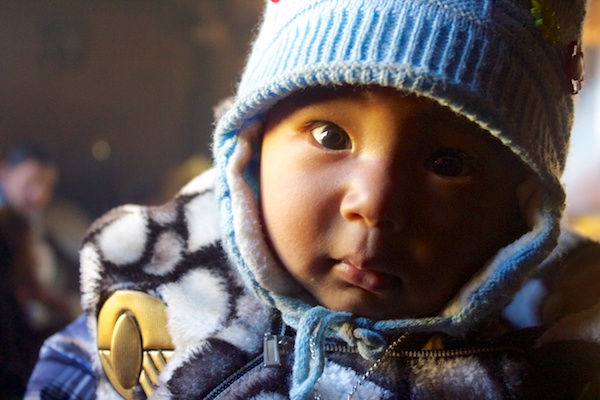
Personally, I rarely practice fertility medicine as it is not an interest for me and their are so many other practitioners for whom this is their passion. This case however had my attention and I could see so many implications as to how we were not just looking after this one young woman, but rather we were attending to the health of an entire family. As a team, we constructed what we thought would be an effective treatment plan. Then over the course of several months and several different volunteer practitioners, we went to work to implement that plan. Kanji Maya traveled several hours by bus twice a week to receive our treatment which at first focused on regulating her cycle, then later focused on building uterine blood, so that she could sustain a pregnancy. Towards the end of my stay in 2011 we had accomplished everything we had hoped to and I counseled Kanji Maya that the timing was right for her to try to get pregnant again. The team taking over for me continued her treatment for several weeks thereafter and in the Spring of 2012 we received the news that Kanji Maya was indeed pregnant. In early August she delivered a healthy son.
---
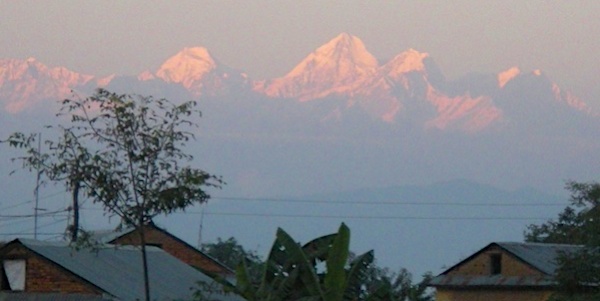
In the brisk mountain air of January, Satyamohan and I ride our small motorbike up the twisting road to the small village of Bhardev. A smattering of small white pines line the edges of the narrow road. At each bend a cathedral of Himalayan peaks pierce the horizon as my fingers burn from the cold. After reaching the pass we descend into a beautiful grassy valley littered by small clumps of thatched roof houses. A few minutes later we pull up in front of a squat, mud-and-brick building and as we dismount we are greeted by a small group of brightly dressed Tamang women. We are quickly escorted inside where the celebration is already long underway.
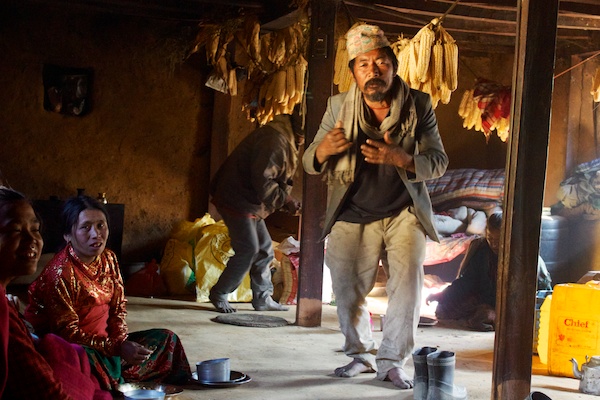
Pasni, the Weaning Ceremony, is one of the many hundreds of celebrations in Nepal. Relatives gather to witness and celebrate the child’s first taste of rice and for sons, this takes place when he is 6-months-old. We are escorted into a large smoke-filled room with mud floors. Dried corn and strips of meat hang from the low ceiling and a group of women attend an earthen hearth with a wood fire. They are busy preparing the meat of young water buffalo which was slaughtered just this morning. My eyes burn and the acid wood smoke causes my nose to run. I see many family members lining the inside of the small space, all drinking chhaang (rice beer) and talking all at once. One man gets up and entertains the group with a lively dance and everyone joins in by singing traditional folk songs.
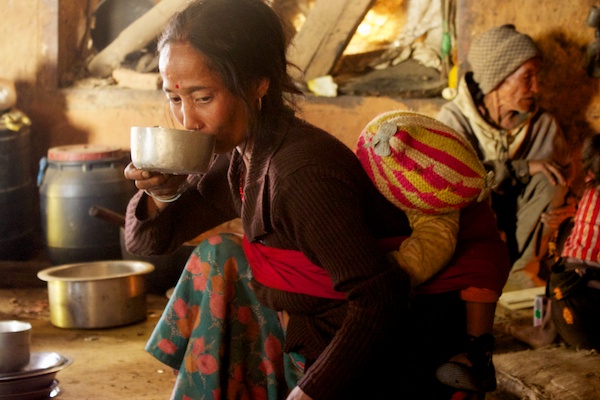
Satyamohan and I are served heaping plates of spicy meat, rice and vegetables. One by one people come over to talk to us. They tell us how happy they are to have this new baby and how thankful they are for our clinic. Every story has the same theme. “I came to the clinic... then I sent my wife, she sent her brother, he brought his wife...” and on and on. It seems like pretty much everyone in Bhardev and the surrounding area had been touched by our clinic in one way or another. This new baby was just one tangible example. And who is to say really... Was it our medicine that brought to boy into this community? Perhaps it was just our kindness and support that allowed Kanji Maya the little more time she needed. Maybe it was just luck.
As I look though the smokey haze at the joy that is filling the hearts of so many people... let’s just call it an immeasurable success. --- Author: Andrew Schlabach
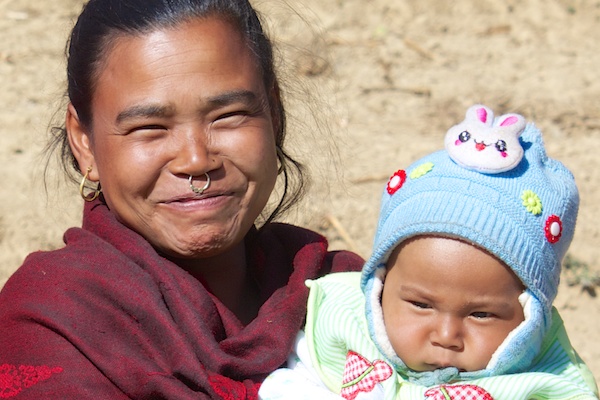
Our Mission
Acupuncture Relief Project, Inc. is a volunteer-based, 501(c)3 non-profit organization (Tax ID: 26-3335265). Our mission is to provide free medical support to those affected by poverty, conflict or disaster while offering an educationally meaningful experience to influence the professional development and personal growth of compassionate medical practitioners.

